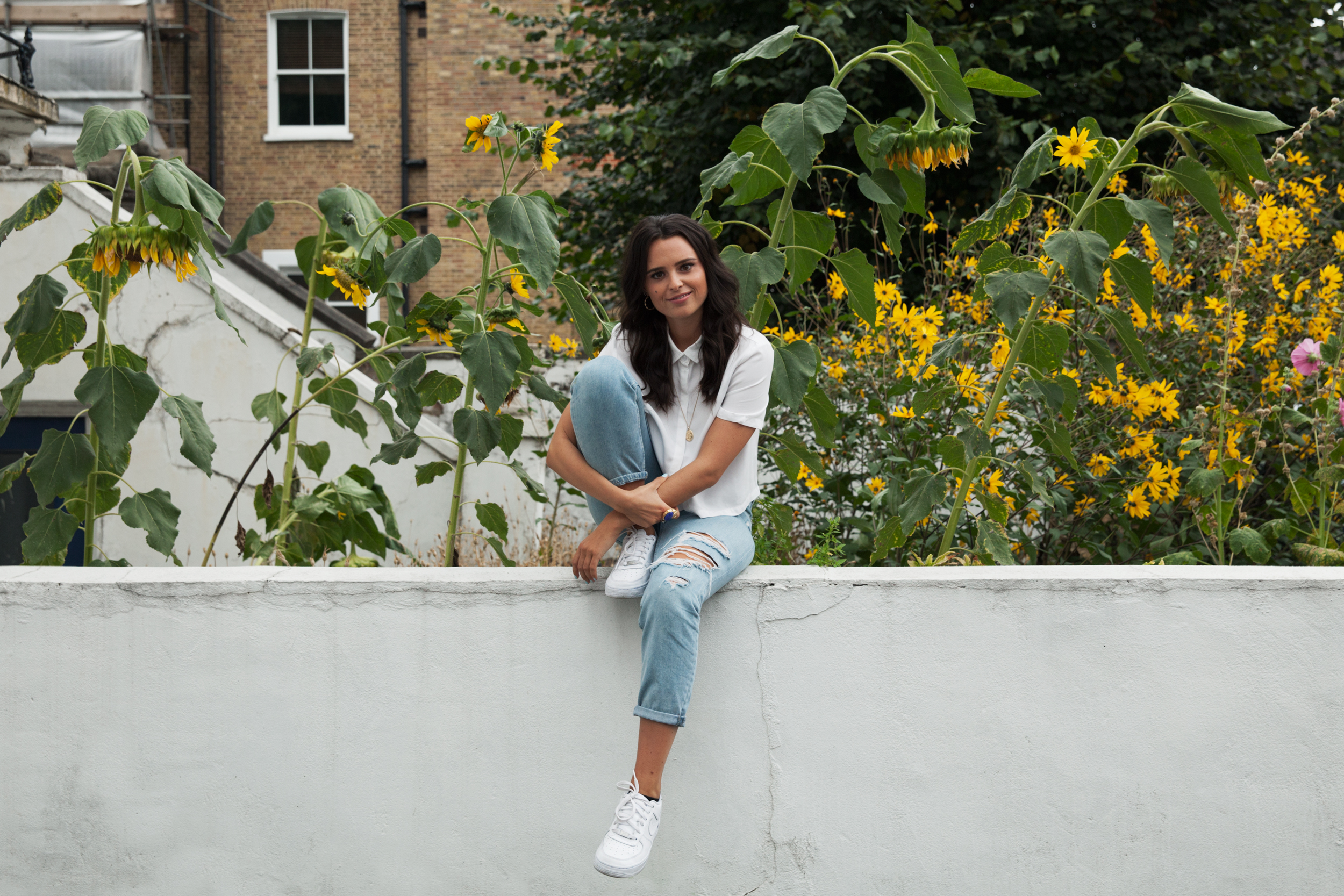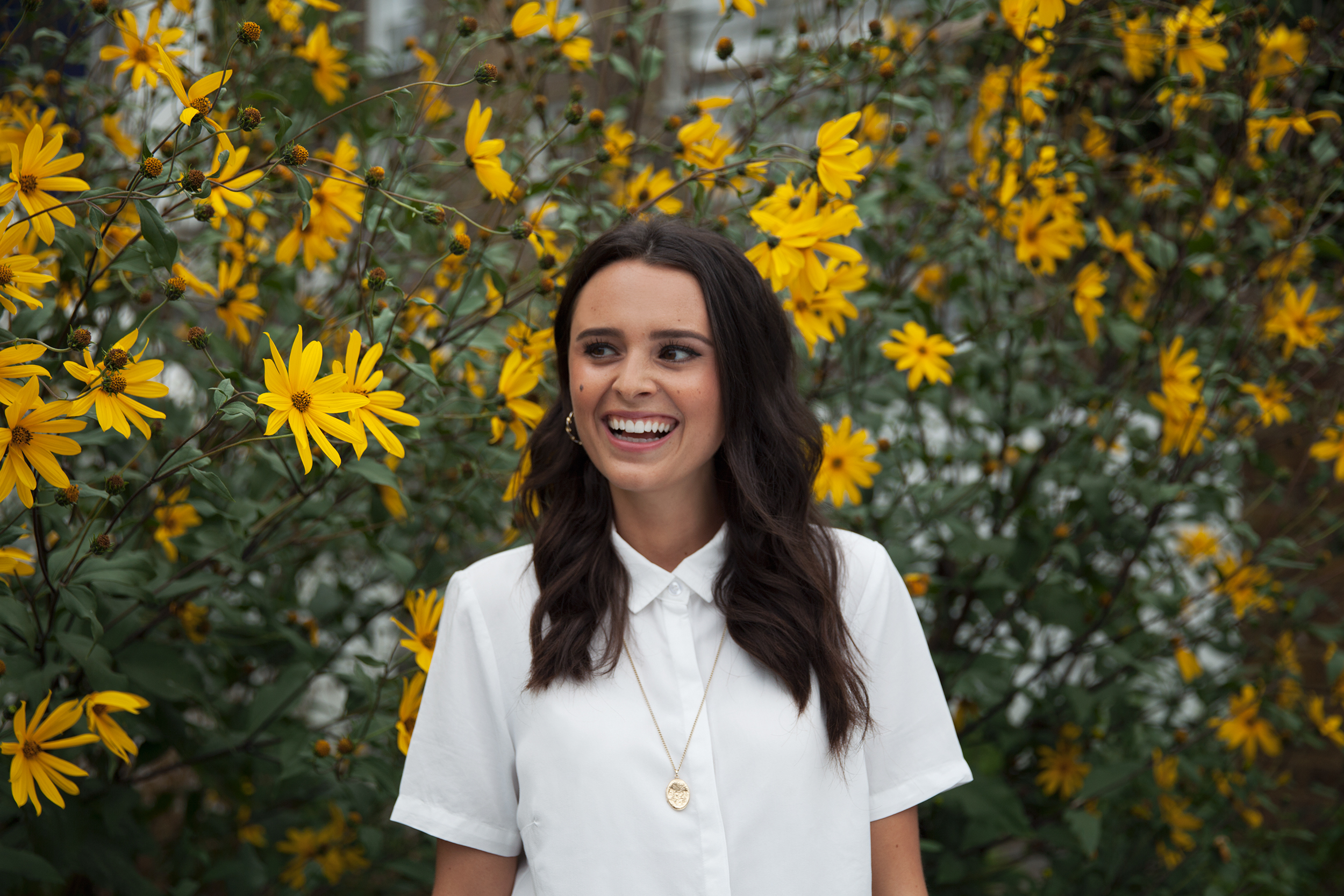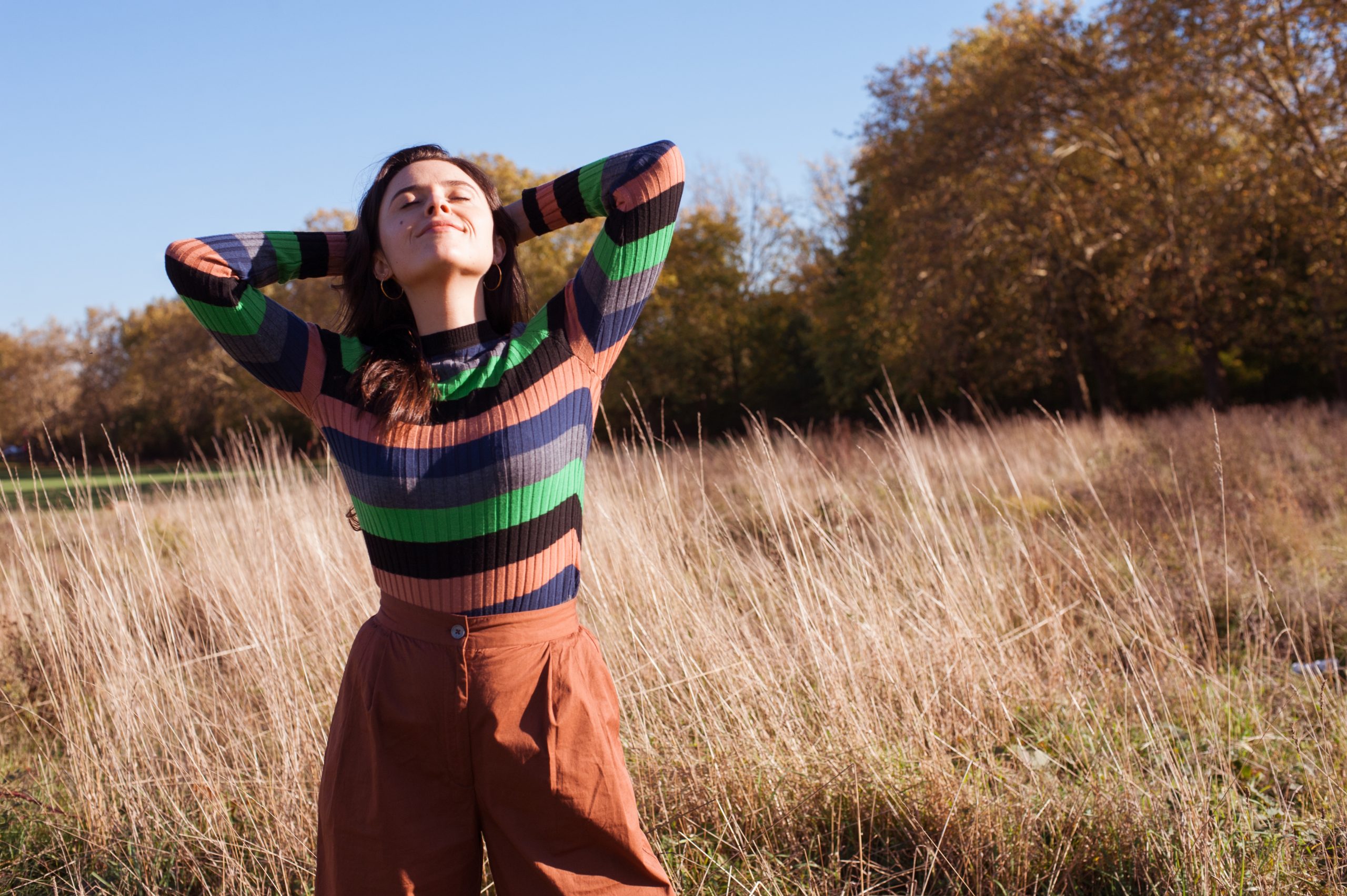Venetia La Manna explains how to make every aspect of your life more sustainable
Sustainability activist Venetia La Manna gives her guidance on everything from slow fashion and social media activism to having a low waste wedding...


Sustainability activist Venetia La Manna gives her guidance on everything from slow fashion and social media activism to having a low waste wedding...
We are living in an era of activism. People are not only waking up to the importance of looking after our planet, we're also speaking out about it more than ever.
We're going to protests with signs. We're marching for the climate. We're signing petitions. We're taking to social media. And most importantly, we're using our voices and amplifying each other's.
No one knows this more than Venetia La Manna (formerly Falconer), famed for her sustainability activism.
This week, Venetia is working with NCS as they launch a series of events hosted by their favourite creators, giving young people the opportunity to say ‘No We Can’ do all the things we want in summer 2020.
As part of the campaign, Max and Venetia La Manna hosted a live cook-a-long on NCS’ Instagram, where they taught young people how to make a sustainable, low-waste dinner.
‘We must consciously consume but also rally for system change’, Venetia told Digital Features Editor Jenny Proudfoot as part of our #startsomewhere campaign.
Celebrity news, beauty, fashion advice, and fascinating features, delivered straight to your inbox!
We sat down with Venetia to hear more about the NCS Staying Connected project and to look into simple steps we can all take to make daily life more sustainable.
https://www.instagram.com/tv/CCwASYRBOUg/
Tell us about the NCS Staying Connected campaign and what drew you to it…
I think back to when I was at school and all I would do was look forward to the summer holiday and all the activities that I was going to do. It’s the kind of thing that keeps you motivated and keeps you going. Now more than ever it’s so important for us to stay connected and feel like we’re learning. I’ve personally been enjoying lots of webinars from different authors and speakers. So I was really delighted to partner with NCS to share some of my knowledge on conscious and sustainable living. We’re doing an Instagram live cook along from my own kitchen and teaching people watching how to make a plant-based low-waste dinner. I’m actually making it with my husband Max, who is a chef and an award-winning author, so he’s really good at this stuff. I used to think I was a good cook and then I met him. We will be making two Instagrammable dishes. One of them is going to be a baked Mac and Greens and we’re also going to be making a sweet treat too. Both dishes are going to be Instagram-worthy and actually super easy to make - all of the food we cook can be made in less than half an hour. Lots of the cooking and life skills will be available to learn via the NCS website.
Why is it important for you to teach your viewers actual skills to take away?
Whenever we do a talk, we try and give as many easy tips for people to follow as we can. I think it empowers people, gives them agency and helps them see that it’s not that difficult to create less waste and do a little bit more for the planet. So, we speak about different ways that you can use specific vegetables and adaptable ways to make the sauces. Lockdown especially has made us realise that you can’t always get all the ingredients that you want and so it’s really important with recipe creating and sharing that you give people alternatives. That way, in the future they will be less reliant on the recipe and it will give them the agency to go and adapt as they see fit.

Does cooking sustainably have to mean more effort and expense?
Making the most of what you have is how people have been cooking for generations. One of my go-to dishes can be made in literally five minutes. I just put some oil in a pan and then I crumble up tofu, and add some seasoning to the it - turmeric powder, smoked paprika and salt and pepper. I chop whatever vegetables I have and then throw in some really quick cook noodles (that take like 3 minutes). Throw it all in a pan, add some soy sauce and you’ve literally got a delicious plant-based dinner that’s quick and uses up all those vegetables that get lost at the back of the fridge.
What daily food decisions can we be making to reduce our impact on the environment?
I think it starts with planning. Before you do your food shop, have a look at what’s in your fridge and actually make a list of what you need to buy. It sounds so easy but I think it’s really important. I also prefer not to go to the shops hungry because then I feel like I buy things that I really don’t need. Making the most of what you have and what you buy is important. Really try to use every part of the vegetable - that’s something I have learned from Max. We always make sure we use our broccoli stalks whether it’s in stir fries or just baking them, we use the stems of our herbs in pesto, and when strawberries are in season, a really good way of not wasting the leafy tops is to throw them in whole when making smoothies. Don’t overbuy, make friends with your freezer and really importantly, compost. Even if you don’t have a garden, make sure you hassle your council for a food waste bin. It’s such a simple thing but not only does composting and segregating your food waste mean that you’re lowering your carbon footprint, it also means that you’re giving back to the soil. And it also prevents your bins from smelling really bad which let’s face it is the worst. There’s nothing worse than a morning run on a smelly bin day.

Do you have any advice for living more sustainably?
I think if we can take a mindful and considered approach to every aspect of our lives, it’s a really good thing. That starts with education and having an appreciation for and making the most of what we have. A lot of it is quite straight forward. When it comes to travel, make the most of public transport if you’re able to and if you can reduce flying, that’s really great. If you can put more plants on your plate that’s also a really wonderful thing. I’m very conscious though that the onus should not just be on us as individuals. It’s about corporations, governments, businesses and everyone coming together to do their bit.
Why is it so important to use our platforms and voices for activism?
Because it works. Social media activism is really effective, especially at the moment. It’s a great place to be talking about serious issues. One of these is the #PayUp campaign, which is all about wage justice. It’s campaigning for garment workers around the world who have been put in a devastating situation by multiple major fashion brands who are refusing to pay them for the work they have already done. It sounds so simple, but so many brands (lots run by billionaires) are refusing to pay. These are the kinds of conversations that we can spread through social media activism, especially because it’s so accessible. A lot of people can’t go to protests for various reasons, but for the most part, we are able to log on to a social media account and sign a petition, share that petition or amplify someone’s voice. It’s really important.
How can we actively make individual change?
A really effective way is to get familiar with your local MP. There is a website that helps you find your MP easily - you just have to type in your postcode. I have emailed my MP so many times about so many issues. If you let your MP know that you are a constituent of your borough, it puts pressure on them to take really important issues forward to the government. You can do it from your own home and it will take you literally two minutes to write the email. Get familiar with your local MP and start hounding them. It’s really effective and they will get back to you.
Let’s talk slow fashion…
I am really passionate about slow and ethical fashion, especially as someone who was a fast-fashion addict. It started more as an environmental issue and more and more it is becoming about social injustice for me, especially as I learn more about garment workers. Fashion brands in general are forbidding workers to unionise and to strike and that just breaks my heart. I can’t even imagine what that must be like. I am self-employed, I choose how I use my voice and what work I say yes and no to - it breaks my heart that others can’t. It is important for me to say that I do have layers of privilege that allow me to shop in line with my ethics, but as individuals, there are lots of things that we can do to help.

How can we all shop for our clothes more responsibly?
Firstly, you can’t buy your way to sustainability. Sustainable fashion and slow fashion starts with making the most of what you have. So, that is my number one tip - make the most of what is already in your wardrobe. Go full Marie Kondo on it, organise it and learn exactly what you have in it. In the UK alone, we have something like £30 billion worth of never worn clothes just sitting in our wardrobes. It’s just mind-blowing. My second piece of advice is to read the labels on your clothes. Not only is this a really great way to learn what your clothes are made from which is important, it is also a really good way to remember how to wash our clothes. And if we want to make our clothes last longer, it’s important to wash them properly. And then my third piece of advice is to find a way around buying a new trend. I know how it feels when you want to get your hands on something new. I love newness, I love trends and I’m a real fashion lover at heart. But when you want that dopamine hit for something new, think around it. Can you swap something with a friend? Can you rent something? Can you thrift something? Can you buy vintage? What can you do to buy what is already in existence? And most importantly, with whatever you’re buying, because obviously sustainable fashion and slow fashion looks different to everyone, ask yourself if you love it and if it makes your heart sing. If it doesn’t, don’t buy it. If it does, go forth.
What is your advice for having a low-waste wedding?
We had a dress code that anyone is more than welcome to use - ‘Something Old, Nothing New, Something Borrowed, Something Renewed’. Basically, no guests are required to buy something new. That was really important to me because I know that there’s a lot of pressure to buy new occasion wear for weddings. And, it also means that everyone has something to talk about when they arrive. Max and I both wore vintage. We also tried to source our food as locally and seasonally as possible, we went super local on the flower front and we composted any food waste from the day.
What should we be reading about activism?
A lot of my activism learning over the past year has been based around anti-racism because racism and colonialism are woven into so many of the issues that we face today. So, that’s books like, Why I'm No Longer Talking to White People About Race by Reni Eddo-Lodge and Me and White Supremacy by Layla Saad. I have also been taking a deep dive into Disaster Capitalism, the focus of which is Naomi Klein’s work around capitalism and the climate crisis. It’s super helpful and I would highly recommend it. Naomi Klein is a top priority for this kind of activism work. I also loved Why Women Will Change The World by Friends of the Earth - a collection of essays, it’s a really good read. For me, it’s less about the books that are like ’100 ways to reduce your plastic’ even though those are of course helpful. It’s more about a deep understanding of capitalism and also racism and colonialism. I just read the most interesting book about activism called Outraged: Why Everyone Is Shouting But No One Is Talking by Ashley 'Dotty' Charles, all about how We are living in the age of outrage. And my fashion recommendations to read are Fashionopolis: The Price of Fast Fashion and the Future of Clothes by Dana Thomas - it’s a really good read about the very unethical side of the fashion industry. It’s quite a deep dive but very very good. And then for a more accessible read, I’d recommend Lauren Bravo’s How to Break Up with Fast Fashion.
What is a conversation that we need to be having?
It has to be a focus on fashion and really deeply thinking about the people who make our clothes and the conditions that they’re in. 80% of them are women of colour and most of them make $21 a month which is way less than a fair living wage. We need to be thinking about how we can support them as consumers, how we can support existing campaigns and unions and just making sure we’re shining a light on the people who make our clothes. It’s about thinking about them and remembering that if we show love to the clothes that we own, we are showing respect to those women.
To find out more information on the life skills young people can learn with NCS this summer, head over to their website: wearencs.com

Jenny Proudfoot is an award-winning journalist, specialising in lifestyle, culture, entertainment, international development and politics. After working at Marie Claire UK for seven years - rising from intern to Features Editor - she is now a freelance contributor to the News and Features section.
In 2021, Jenny was named as a winner on the PPA's '30 under 30' list, and was also listed as a rising star in journalism.